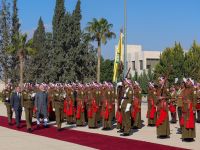The 197-page report, to be published on 24 February, states that for those interested in peace and a non-violent resolution of conflict, the future looks bleak, “not just because the war on terror keeps producing enemies with whom, it is said, there is no negotiating, but because the legal and political framework it has engendered has transformed the way in which political violence … is managed. At the heart of this transformation is the freedom for governments to apply the terrorist label to groups and individuals on the basis of very broad definitions of what ‘terrorism’ entails … leading to a glut of terrorist designations.”
International, regional and national lists of thousands of designated “terrorist” entities now span the globe. The war on terror, the report says, has “presented a formidable challenge to those seeking the peaceful resolution of conflicts caused by legitimate and long-festering grievances”. In short, how can professional mediators and “peacebuilding organisations” continue to work if they don’t know whether their activities are lawful?
The report contains the kind of academic jargon that makes me roar with anger – “conceptual tools”, “non-state armed actors” and “global counter-terrorism listing instruments” abound – and it’s rather mild to the Western governments who threaten all those who “talk to terrorists” with legal action at home while doing deals with the same rogues behind everyone else’s back. The Israelis organise Hezbollah-Israeli prisoner releases, for example, via the German secret service.
The paper looks at terrorist “listing” in Somalia, the Palestinian occupied territories and Turkish Kurdistan, but its analysis of Hamas “listing” – and reference to the Taliban – tells the whole story. The EU’s exclusion of Hamas from diplomatic relations – the EU obediently following the Israeli-US lead – resulted in Europe’s marginalisation in Palestinian talks. An American NGO withdrew from training and mediation work with the Taliban in Afghanistan when US diplomats could not give them assurances that their work was lawful. Jimmy Carter’s US-based “Carter Centre” ended conflict-resolution talks with “Hamas” leaders. An EU mental health project in Gaza collapsed because of “a prohibition of dialogue with relevant [Hamas] officials”.
The UK-German report contains a truly surreal remark from a Palestinian NGO which deserves a finale all of its own. “I believe that we need to talk to Hamas to educate them and we need to let them know what’s going on,” he said. “But we cannot make a workshop, we cannot offer a Nescafé or cappuccino for any one of them. It’s considered as materialistic support … can you imagine it? You cannot offer them a coffee!”
On 2 February, I recalled in The Independent the kindness of a Heathrow dispatcher called Doug Tibble who returned my contacts book after I left it on a (then) BEA aircraft in 1972. I lost his note, failed to reward him for his kindness and asked if anyone knew where he was today. Now Penny Proudlock has written to say that she worked for BEA and knew Doug. “It was entirely in character that he returned your precious contact book,” she says. “He was quite a big man, but very gentle, and quietly spoken.”
Then she went on: “He and his family suffered the most dreadful tragedy: his son served as a police officer in London and he was murdered in a showdown with some criminals … Doug bore this loss with huge dignity.”
In fact, Constable Stephen Tibble was murdered by a Provisional IRA member called Liam Quinn in Kensington 40 years ago. Stephen was newly married, 21 years old and had been in the police just six months. Off-duty and unarmed, he chased Quinn on his private motorcycle after the IRA man had escaped some colleagues, tried to stop him and was shot twice in the chest. After years on the run, Quinn was sentenced to life, served 11 years and came out in 1999 via the Good Friday Agreement.
Alas, I still don’t know if Doug Tibble, who would be in his eighties, is still alive.
By Robert Fisk








